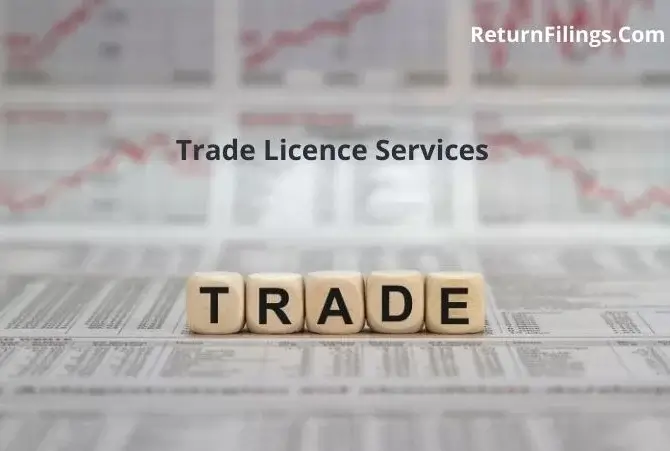Trade License in India: Key Types, How to Apply, Compliance Must-Knows — Pros and Pitfalls
1. Introduction
A Trade License is an official permission granted by municipal corporations or local authorities that allows an individual or a business to carry out specific commercial activities at a designated location. It ensures that the business complies with safety standards, environmental regulations, and zoning laws. There are different types of license required to be obtained by business entity based upon their nature of activity, such as manufacturing unit require certain licenses and permits, food processing unit requires certification from FSSAI etc.
2. Governing Authority and Legal Framework
These Licenses are governed by the State Government and regulated by Municipal Corporations. The authority to grant, renew, or revoke trade licenses lies with the respective local municipal bodies in each state. The revenue collected through trade licenses contributes to state government funds.
3. Types of Trade LicenseS
Trade Licenses are categorized into three main types:
3.1 Industrial Trade License
• Issued to manufacturing units, factories, and industries.
• Compliance with the state industrial policy and zoning regulations is mandatory.
• Typically issued for operations in designated industrial areas.
• Example: A textile manufacturing unit in an industrial zone requires this license.
3.2 Shop Trade License
• Issued to businesses engaged in retail and commercial trade.
• Covers shops, general stores, commercial establishments, and offices.
• Certain hazardous trades (e.g., cracker manufacturing, firewood sales) require special permissions.
3.3 Food Establishment License
• Issued to businesses involved in food production, processing, and sale.
• Requires compliance with food safety and hygiene standards.
• Example: Restaurants, bakeries, food stalls, and packaged food manufacturers.
4. Importance of Trade License
• Ensures compliance with state laws and municipal regulations.
• Prevents illegal or unauthorized commercial activities.
• Assures that businesses operate in a safe and non-hazardous environment.
• Helps in government monitoring and tax collection.
5. Eligibility Criteria for Trade License
The following conditions must be met to obtain a Trade License:
• The business must operate in legal premises as per zoning laws.
• The applicant must be at least 18 years old.
• The business must comply with safety and hygiene standards.
• No prior criminal record related to trade violations.
6. Application Process for Trade License
Trade License applications can be filed online or offline with the respective municipal authority.
6.1 Documents Required
a. Identity Proof of the applicant (Aadhaar, PAN, Passport, etc.).
b. Business Address Proof (Electricity bill, Lease Deed, Property Tax Receipt, etc.).
c. Ownership Proof or NOC (No Objection Certificate from the owner if rented).
d. Municipal Property Tax Receipt (if applicable).
e. Site Plan and Layout (for industrial or hazardous businesses).
f. Food Safety Certificate (for food-related businesses).
6.2 Online Application Procedure
• Visit the official municipal corporation portal (varies by state, e.g., mcdonline.gov.in for Delhi, e-nagarsewaup.gov.in for Uttar Pradesh).
• Register on the portal and log in.
• Select ‘Apply for Trade License’.
• Fill in business details and upload documents.
• Pay the prescribed application fee online.
• Submit the application and track status online.
6.3 Offline Application Procedure
• Visit the local municipal office.
• Obtain the Trade License application form.
• Attach the required documents.
• Pay the applicable fees at the municipal office.
• Submit the application and collect the acknowledgment receipt.
7. Validity and Renewal of Trade License
• A Trade License is generally valid for one financial year (April to March).
• Renewal applications must be submitted between January 1 and March 31.
• Renewal requires updated documents, including tax receipts, pollution control certificates (if applicable), and any required approvals.
8. Trade License Fees and Penalties
• Fees depend on business type, location, and municipal authority regulations.
• Failure to obtain or renew a Trade License can result in penalties, fines, or business closure.
• Unauthorized trade may lead to legal action and revocation of license.
9. State-Wise Trade License Regulations
Different states have separate portals and rules for Trade License issuance:
• Delhi: mcdonline.gov.in (NDMC, SDMC, EDMC)
• Uttar Pradesh: e-nagarsewaup.gov.in, niveshmitra.up.nic.in
• Maharashtra: portal.mcgm.gov.in (Mumbai Municipal Corporation)
• Karnataka: bbmp.gov.in (Bangalore Municipal Corporation)
• Tamil Nadu: chennaicorporation.gov.in (Chennai Corporation)
10. Case Study: Importance of Trade License Compliance
Case Study: A restaurant in Bangalore operated without a Trade License for over a year. After an inspection by BBMP (Bruhat Bengaluru Mahanagara Palike), the business was fined ₹50,000 and forced to shut down until compliance was met. This highlights the significance of obtaining a Trade License on time.
11. Conclusion
A Trade License is a mandatory requirement for businesses operating in India. Compliance ensures smooth business operations while avoiding legal penalties. Business owners should be proactive in obtaining and renewing their Trade License to ensure regulatory adherence and a hassle-free business experience. With expert assistance from Return Filings, you can ensure a smooth registration and compliance process for your Trade License. For professional assistance, reach out to us on email: info@returnfilings.com or on whatsapp: https://wa.me/919910123091.
frequently asked questions (faq's) related to Trade License in India
Q What is a Trade License?+
A A trade license is a permit issued by the municipal corporation or local authority allowing a business to operate in a specific trade or activity within their jurisdiction. It's essentially permission to conduct a particular type of business from a specific location.
Q Why is a Trade License required?+
A Trade licenses are mandatory for businesses to operate legally. They ensure that businesses comply with local regulations related to zoning, safety, hygiene, and environmental concerns. They also help the municipality regulate and monitor commercial activities.
Q Who needs a Trade License?+
A Virtually all businesses, whether small or large, commercial or industrial, need a trade license to operate legally. The specific requirements vary based on the type of business and the location.
Q What are the benefits of having a Trade License?+
A Benefits include:
• Legal authorization to conduct business.
• Avoidance of penalties and legal issues.
• Enhanced credibility and trust.
• Easier access to other business registrations and licenses.
Q Where should I apply for a Trade License?+
A You apply for a trade license at the municipal corporation or local authority's office in the area where your business is located. Many municipalities have online portals for application submission.
Q What is the process for obtaining a Trade License?+
A The process typically involves:
• Filling out an application form.
• Submitting the required documents.
• Paying the prescribed fee.
• Inspection of the business premises (sometimes required).
• Issuance of the trade license.
Q What documents are required for a Trade License application?+
A Document requirements vary by location and type of business but often include:
• Application form.
• Proof of identity of the business owner (Aadhaar, Passport, Voter ID, Driving License).
• Proof of address of the business premises (rent agreement, property documents, utility bills).
• Site plan of the business premises.
• NOC from the landlord (if renting).
• PAN card.
• Business constitution documents (Partnership Deed, MOA, AOA, Certificate of Incorporation).
• Fire/Health Department clearance (if applicable).
• Photographs.
• Other documents relevant to the business type (e.g., food license).
Q How much does a Trade License cost?+
A The fee varies significantly based on the type of business, location, and the municipality's fee structure.
Q How long does it take to get a Trade License?+
A The processing time varies depending on the municipality and the complexity of the application. It can take anywhere from a few days to several weeks.
Q Can I operate my business without a Trade License?+
A No, operating a business without a valid trade license is illegal and can result in penalties and legal action.
Q How often do I need to renew my Trade License?+
A Trade licenses typically need to be renewed annually, although some municipalities may have different renewal cycles.
Q What is the process for renewing a Trade License?+
A The renewal process is similar to the initial application process, involving submitting an application form, paying the renewal fee, and sometimes undergoing an inspection.
Q Can I transfer my Trade License to another location?+
A Generally, no. You would typically need to apply for a new trade license for the new location.
Q Can I transfer my Trade License to another person?+
A Transferring a trade license is usually not permitted. The new owner would need to apply for a new license.
Q What if I change my business activity?+
A You will likely need to apply for a new trade license reflecting the changed business activity.
Q How do I apply for a trade license in ?+
A Application needs to be filed with the local municipal corporation.
Q What are the documents required for a trade license?+
A Vary by location; check with the municipality.
Q How much does a trade license cost?+
A Varies by location and business type; contact the municipality.
Q How long is a trade license valid for?+
A Usually one year.
Q Do I need a trade license for an online business?+
A Potentially yes, depending on the nature of your business and local regulations.
Q What happens if I operate without a trade license?+
A Penalties and legal action.
Q Where can I find the trade license application form?+
A At the municipal office or their website.
Q What is the difference between a trade license and a business license?+
A The terms are often used interchangeably, but "trade license" usually refers to the municipal permit.
- For further reading, explore the following topics:
- 📦 IEC Registration Process in India: Step-by-Step Guide for Exporters & Importers
- 📝 MSME/Udyam Registration Process in India: Benefits, Eligibility & Online Application Guide
- 🏛️ Society Registration Process in India: Legal Requirements & Compliance Checklist
- 💼 NSIC Registration for MSMEs in India: Process, Eligibility, and Key Benefits

